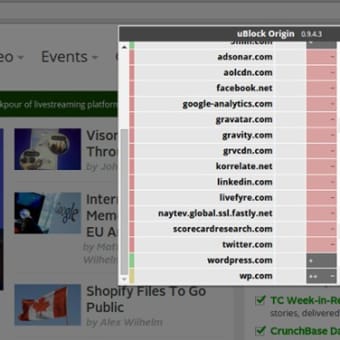

Of course, the more filters enabled, the higher the memory footprint. More lists are available for you to select if you wish: Out of the box, these lists of filters are loaded and enforced: Lexible, it's more than an "ad blocker": it can also read and create filters from hosts files. It applies to the current web site only, it is not a global power button. Usage: The big power button in the popup is to permanently disable/enable uBlock Origin for the current web site.

Enforce implicit media type for filters using mp4 option.Make object equivalent of frame for dynamic filtering purpose.Add infrastructure for static filter syntax linter.Add matched cosmetic filters in troubleshooting information.Fix improper detection of quotes in quoted strings.

Start using browser.alarms instead of setTimeout() where applicable.Wrap usage of setTimeout in helper for background + auxiliary pages.Properly detect incorrect usage of CSS combinators.Better integrate suspend-network with unprocessed-request.Make the toolbar warning timeout configurable.If ever you really do want to contribute something, think about the people working hard to maintain the filter lists you are using, which were made available to use by all for free. More lists are available for you to select if you wish:Īdditionally, you can point-and-click to block JavaScript locally or globally, create your own global or local rules to override entries from filter lists, and many more advanced features. Peter Lowe’s Ad server list (ads and tracking) through the following lists of filters, enabled by default: Out of the box, uBO blocks ads, trackers, coin miners, popups, etc. UBlock Origin is not an "ad blocker", it's a wide-spectrum content blocker with CPU and memory efficiency as a primary feature.


 0 kommentar(er)
0 kommentar(er)
